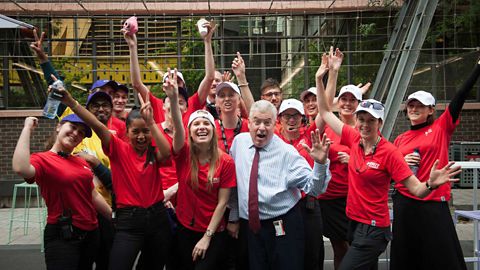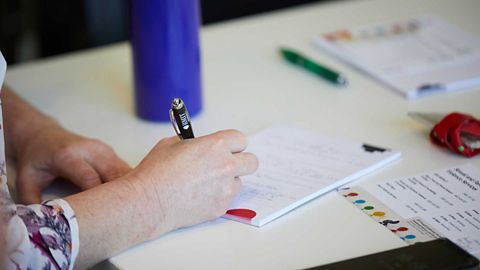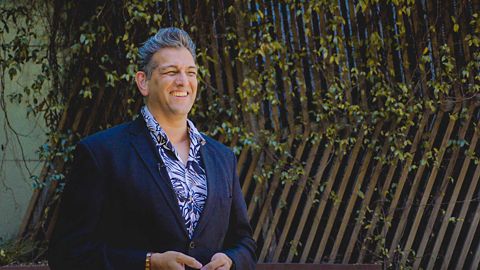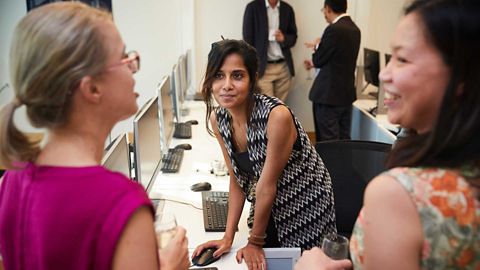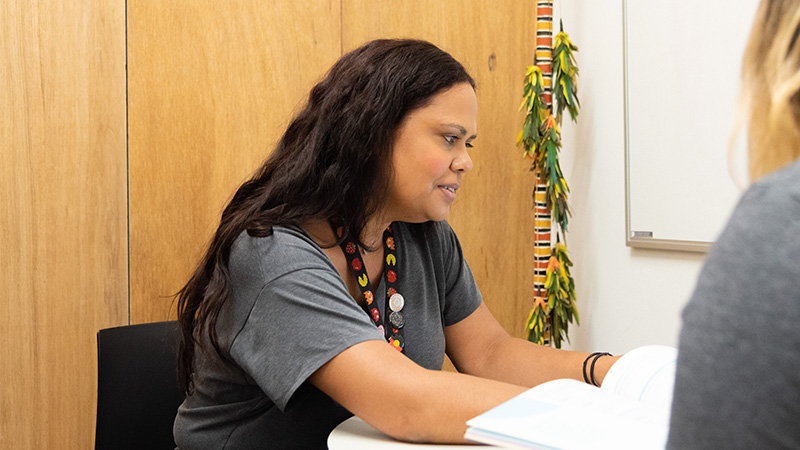Ready to apply? Here's the place to start. Learn about the application process and what we expect from our applicants.
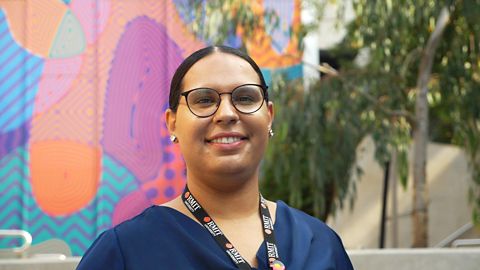
Work With Us
Application and Interview process
We are a global university of technology, design and enterprise. We bring together a rich diversity of people and endeavours and we recognise everyone’s role in making a difference.
What unites us, is our purpose and our values; they are at the heart of who we are, what we stand for, how we make decisions and connect with each other. Our Values inspire us, shape how we know and be on place, wherever we are in the world, and guide how we live and work together.
Inclusion.
We are better for our diversity, both students and staff. When we listen to those who are different to us, or challenge us, we grow stronger together. When we feel like we belong, we can achieve so much more. We respect each other, we embrace our differences and we build a sense of belonging in our team and beyond.
Imagination.
With an open mind, we are open to new possibilities. When we think creatively and try new things, we break new ground. And with perseverance, our ideas become innovations. We experiment and explore new ideas, we seek out different views to solve problems and we encourage innovation.
Integrity.
We are honest and fair and hold ourselves to the highest ethical standards. We uphold transparency and accountability and use expertise and evidence to make decisions. We strive to uphold RMIT's obligations and reputation.
Courage.
Being our best selves takes courage. When we do what’s right, and not just what’s easy, we hold ourselves to account. We back each other up, and we call out actions that we don’t accept. We act with integrity, we speak out on issues that matter and we are accountable for our actions.
Passion.
We believe in the power of education to transform lives. Student learning and teaching, research, and partnering with industry, are core to what we do; with purpose and determination. We empower people to learn and grow, we care deeply about the work we do and we take pride in what we do.
Impact.
We strive to make a difference, to be agents of positive change for our students, the community and beyond. When each of us contributes, we can make the world a better place. We seek to make a positive impact, we empower each other to achieve great things and we recognise everyone’s role in making a difference.
Ready to start your career with us? It’s so easy!
Search our current job opportunities. Once you’ve found a role you’re interested in, click through to open and read the full job description to make sure it’s the right role for you.
From there, simply click 'Apply Now' and complete the online application form.

For new applicants, you will need to create an account. You will be asked to enter a valid email address and create a password. This will be your applicant login going forward. If you already have a profile with us, you can sign in and apply with your existing information. Friendly reminder: make sure your details are still correct, you don’t want to apply with an old and outdated CV! You can also reset your password (if you need to) by clicking ‘Forgot Password’ link.
The application form will guide you through all the mandatory questions and will allow to attach any relevant documentation where applicable. For some roles, we may ask you to address Key Selection Criteria (see more on that in Application Tips). Should this be required, you will see a note on this in the position description, advertisement and application form.
Have your current CV/resume ready to be uploaded. We know you want to present yourself from your best side, so please ensure we can read it (PDF and MS Word formats are preferable). Also, help us to get to know you! Detail your professional qualifications and work experience – we want to see how aligned you are to the role and how it fits into your overall career aspirations. If you wish, you can also submit a cover letter and any other supporting documentation to give us some extra information beyond what’s on your resume.
You’ll be able to review a summary of your application before submitting. Once you’ve reviewed your application, click ‘Submit’ to send your application to us.
What happens next?
You will receive an acknowledgement message via email or SMS to confirm that the application has been successfully submitted. If you do not receive a reply, please check if the contact details you provided are correct.
Our Talent team is dedicated to reviewing each application and to ensure the people we invite to the interview and ultimately join the University feel fulfilled by their work. Hopefully, they can live and breathe our values and contribute positively to the experience of our students.
If we think you’re a great fit for the role, a recruiter on the team will call you to further discuss your experience. If this chat goes well, the recruiter will schedule an interview or assessment on your behalf. You will have the opportunity to share information with your potential manager, but most importantly, it gives you the chance to gather extra information to help you decide whether the position is right for you!
Learn more about our interview process in this video:
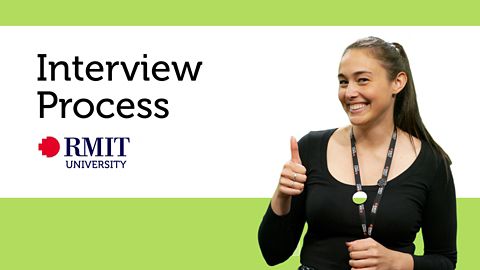
The Interview Process
Supporting our New Starters Virtually
Welcome to RMIT University! We know this isn't the start you imagined, but we have been working hard to make sure you feel welcomed into our community through a remote onboarding program.
This program will include the information and support you need to get settled in, including:
• a personalised induction program guide
• couriered device and ergonomic equipment
• a buddy from your team to be your go-to-person
We hope this makes it as easy as possible for you to fulfill your role at home!
Application tips
If you want to review the progress of your application, you can log into your Candidate Portal by clicking the ‘Sign In’ button. You will see all your previous applications listed under ‘My Applications’.
Your resume is not just your employment history. It’s your opportunity to showcase your achievements and successes as well as personal development. A strong resume indicates how you’ve been successful in your career and relates your skills and experience to the job you’re applying for.
Here are some suggestions for making a great first impression:
Grammar, punctuation and spelling – pay attention to use of correct grammar, punctuation and spelling to demonstrate your communication skills and attention to detail
When listing your employment experiences, don’t forget to detail your achievements. Also, be specific – for example instead of saying you are a “seasoned marketer”, mention the campaigns you worked on or how much revenue you generated.
Use a career summary to highlight the accomplishments that you’re most proud of. Similarly, you can start with career objective if you want to provide context for a career change compared to your past employment history.
Present your employment history with your most recent experience first.
Layout and presentation are vital. Use consistent formatting, sections and graphs where applicable, but don’t go overboard, unless you’re applying for a creative or graphic design role, and you’re looking to show your skills.
Having your name in the header on each page can be helpful for the reader. And don’t forget to include your contact details! Email and phone number are essential.
When applying for a position, key selection criteria is one of the ways for the selection panel to find out more information about candidates’ professional experience, skills and qualifications. Coupled with their resume/CV and cover letter, key selection criteria provide applicants with the opportunity to answer specific criterion, demonstrating their suitability to individual positions. This selection criterion will then be used by the selection panel as a further tool in assessing applicants throughout the recruitment process.
If the position you’re applying for requires applicants to address key selection criteria, you will see a note on that in the advertisement. An application that fails to address the stated key selection criteria may not be considered.
When addressing the key selection criteria, ensure that you have read the position description thoroughly, as this will provide you with information about the University, the position, and any required qualifications and skills.
Under the key selection criteria section of the position description there will be five to eight criterions to be addressed, critiquing your attributes and experience. Please address each of these individually. Examples of situations and experiences can also support your response.
Do your research! Read about RMIT, our purpose and values. Also review the position description and/or job advertisement, make sure you understand the role you’re applying for and what skills and attributes are required from the successful applicant. Think ahead about the examples of when you demonstrated these, as the recruiter and interview panel will most likely be interested in them. Be authentic, show your passion and have the courage to challenge the status quo! We seek those who want to make a positive impact. Also, don’t be afraid to tell us about your mistakes – we see this as an opportunity to learn and finding new ways to get better results. Don’t be afraid to ask the interviewer to repeat or rephrase the question and it's okay to pause if you need to gather your thoughts or think about an example.
Make sure you confirmed the time/date of your interview and know which campus/building you need to go to. Ask your recruiter for a campus map or specific directions and parking/public transport information.
When you join our team, you'll be able to access a range of benefits. From technology, well-being support to flexible schedules and everything in between, we understand that life is not quite one-dimensional.
No matter your need, there’s something for everyone. Find out more here
Vervoe is a software platform we use for testing during our recruitment process.
Applicants requiring adjustments
RMIT exists to create transformative experiences for our students, getting them ready for life and work. Our people make everything at the University possible, and we encourage new approaches to work and learning, stimulating change to drive positive impact.
With one in five Australians identifying as having a disability, we’re committed to providing the best possible experience for all everyone and to keeping accessibility front of mind for all our current and future services. Our Equitable Learning Services (ELS) team provides support and equal opportunities for students with a disability, long-term illness and/or mental health condition and primary carers of individuals with a disability.
As Silver Member of Australian Network on Disability, we are a disability confident employer, committed to providing fair and equitable recruitment processes for candidates with a disability. Our Accessibility at Work team ensures a streamlined and efficient process for staff making workplace adjustment requests.
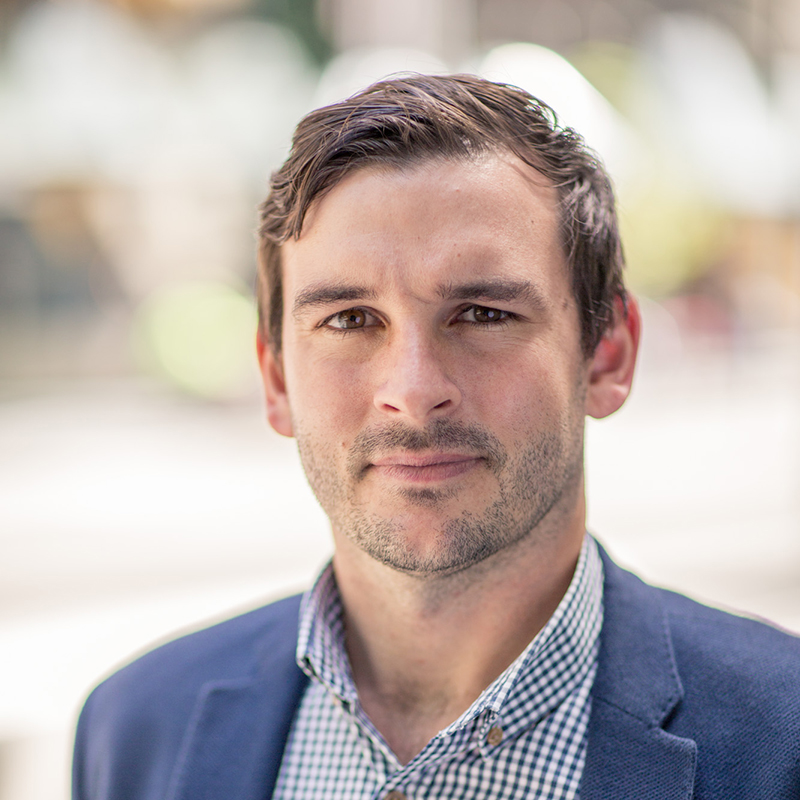 Sam Baillie
Sam Baillie
For most of my life I have struggled to read and write. More recently I discovered that my dyslexia is also linked with visual thinking, spatial ability, pattern recognition, problem solving, heightened intuition and creativity. I facetiously like to think of these attributes as my 21st century super powers. To be an authentic and gutsy leader, one needs to acknowledge the importance of imperfection. We are all flawes. I may have limitations but I also have confidence in my capabilities.
If you have an accessibility requirement, at any stage of the recruitment process, we would be happy to assist. Please email the talent team on TalentSupport@rmit.edu.au.
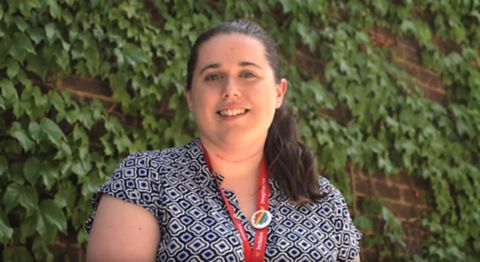
Accessibility
Trans and Gender Diverse applicants
Inclusion is at the durrung (or heart) of who we are. We aim to create an environment where staff and students who identify as trans and gender diverse feel supported to succeed and belong.
We recognise the challenges faced by the trans and gender diverse community when applying for a new role.
At RMIT, we aim to support you from the start. Our Talent Acquisition team are active members of the RMIT Ally network.
For enquires or support through the application, recruitment and onboarding process, applicants who identify as trans or gender diverse are invited to contact Mat Lewis at mat.lewis@rmit.edu.au
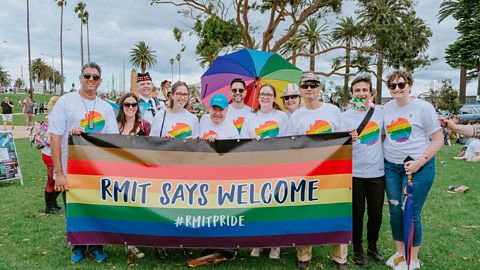
Trans and gender diverse applicants
 Mat Lewis
Mat Lewis
The first few years of my professional career were a mix of covering, being allusive and overall not fun. It was then that I realised the importance of inclusion and the absolute importance of diversity. When deciding to come to RMIT, there were a few factors for me which made my mind up, the most important being RMIT’s dedication to inclusion. Coming from the LGBTI community, it is hard to describe how good it feels to know you can be yourself, and be proud at work.
Achievement Relative to Opportunity (ARtO)
RMIT University is committed to creating inclusive culture that recognises diversity of our staff. We understand that life is multi-dimensional, and you may experience a range of professional and personal circumstances that may affect your career. As such, we implemented ‘Achievement Relative to Opportunity’ (ARtO) principles within our recruitment-related policies and processes. You may decide to activate ARtO to address the impact of personal or work circumstances on the scope of your application.
What is ARtO?
Achievement Relative to Opportunity (ARtO) is an evaluative framework in which there is a positive acknowledgement of what a staff member could or has achieved given the opportunities available to them. This framework is not about providing “special consideration” or expecting lesser standards of performance, but it assists to ensure that the overall quality and impact of achievements is given more weight than the quantity, rate or breadth of particular achievements in relation to their personal, professional and other circumstances.
ARtO framework is used for the purpose of employment-related decisions such as:
- Recruitment, including internal mobility
- Performance review and talent review
- Career planning, including Academic Promotion
ARtO is relevant to all academic staff and academic positions throughout the employee life cycle, including recruitment, performance review/work planning, development and promotion. It acknowledges that personal circumstances are not static and enables candidates with non-linear and less traditional careers to progress their career and skill development. It also gives all employees equal opportunities to discuss their potential and achievements.
Understanding ARtO
What are the benefits of ARtO?
ARtO framework will help you manage and advance less traditional career and it positively acknowledges your work input and achievement given opportunities available to you throughout your career. It enables you to identify and focus on the quality and impact of the work you produced, rather than the quantity and rate at which it is produced.
How does ARtO work?
ARtO is based on the principle that measurement of achievement should be relative to the opportunities available to develop areas of expertise and demonstrate such achievements.
- ARtO focuses on overall quality and impact of contributions and achievements over quantity, rate or breadth of particular achievements.
- ARtO explicitly acknowledges that personal circumstances are not static and have a material effect on the time a staff member has for work-related activity.
- ARtO maximises the application of each staff member’s unique mix of knowledge, skills and attributes to work group outcomes.
International applicants
If you are from overseas and considering moving to Australia to work, there are plenty of online resources to assist you with your planning.
Living in Melbourne
Migrating to another country is one of the biggest decisions of your life. We recommend that you do your research. As doing research into the new town or city that you intend to live in will not only make your settlement and integration into the local community a lot smoother but can also help match your expectations with the reality of life in Melbourne, Australia.
Melbourne, with a population of nearly 4 million people, is a multicultural city. It is also an easy city to navigate with a wide range of transport option, including an extensive public transport system.
Visa information
To work within Australia you will need a valid visa. Current information on migrating to Australia is available from the Department of Immigration and Border Protection (DIBP) website. As there are many visa categories, and variations in personal circumstances, any advice should be sought from DIBP or your nearest Australian Overseas Embassy (a list of Embassies is also available from the DIBP website).
Private health insurance
Medicare is Australia's national public health insurance system. Private Health Insurance is also available from a range of providers. Staff on temporary visas are not covered by the national public health insurance scheme and must take out their own private health insurance for the duration of their appointment.
Australian Taxation Office
The Australian Taxation Office (ATO) website provides information about Australia's taxation system. If you are working in Australia you must apply for a Tax File Number. Information on how to apply for a Tax File Number is available from the ATO website.
Bank account
You will need to open a bank account in Australia to receive your RMIT salary. Compared to your home country, you may find Australian rules and regulations for opening a bank account strict and challenging. When visiting a bank to open an account, ensure you have taken as much documentation with you as possible to avoid follow up visits.
The Australian Prudential Regulation Authority (APRA) is a good place to start your search for a authorized Australian financial institution.
Arriving in Australia
When you land in Melbourne, at the passport desk the immigration (customs) officer will look at your passport and visas, take your immigration (landing) card and ask you why you are coming to Australia. You will need to show them the relevant papers which allow you to stay and work in Australia. It is advisable to have the following items in your hand luggage:
Passport
Visa
Job acceptance offer
Degree certificates
Reference letters (if applicable)
Personal details and Australian contact address
Australian dollars
Driving license (or another identification document).
You might want to have photocopies of all your key travel documents in your main luggage.
Moving to Australia
When moving personal effects and household goods to Australia it is important to refer to The Department of Agriculture and Water Resources for:
A comprehensive list of common items of quarantine concern
Items not permitted entry into Australia
Information about how your goods are cleared through quarantine
Information relating to shipment arrival timelines (can take up to three months).
If you are bringing a pet to Australia, it is vital to review The Department of Agriculture and Water Resources for import conditions prior to travel. All dogs and cats being imported to Australia must meet standard Department of Agriculture and Water Resources conditions.
